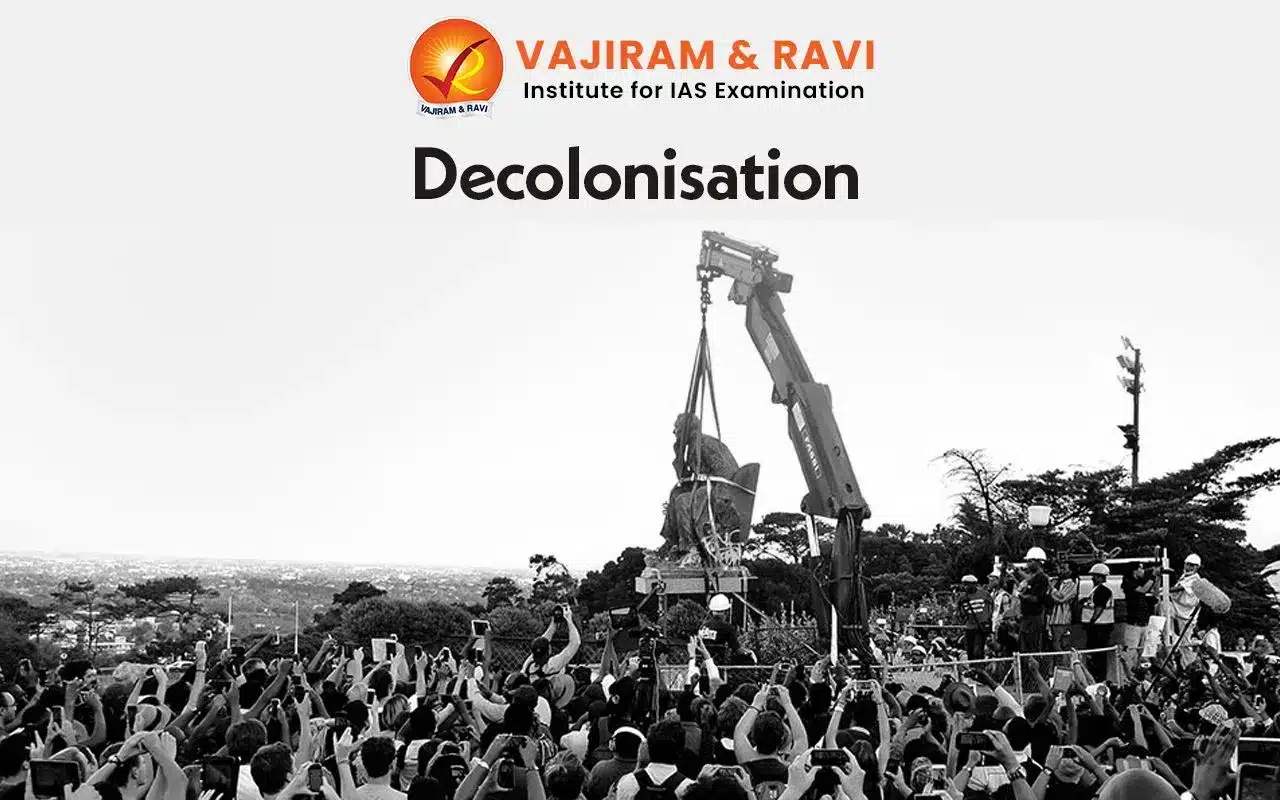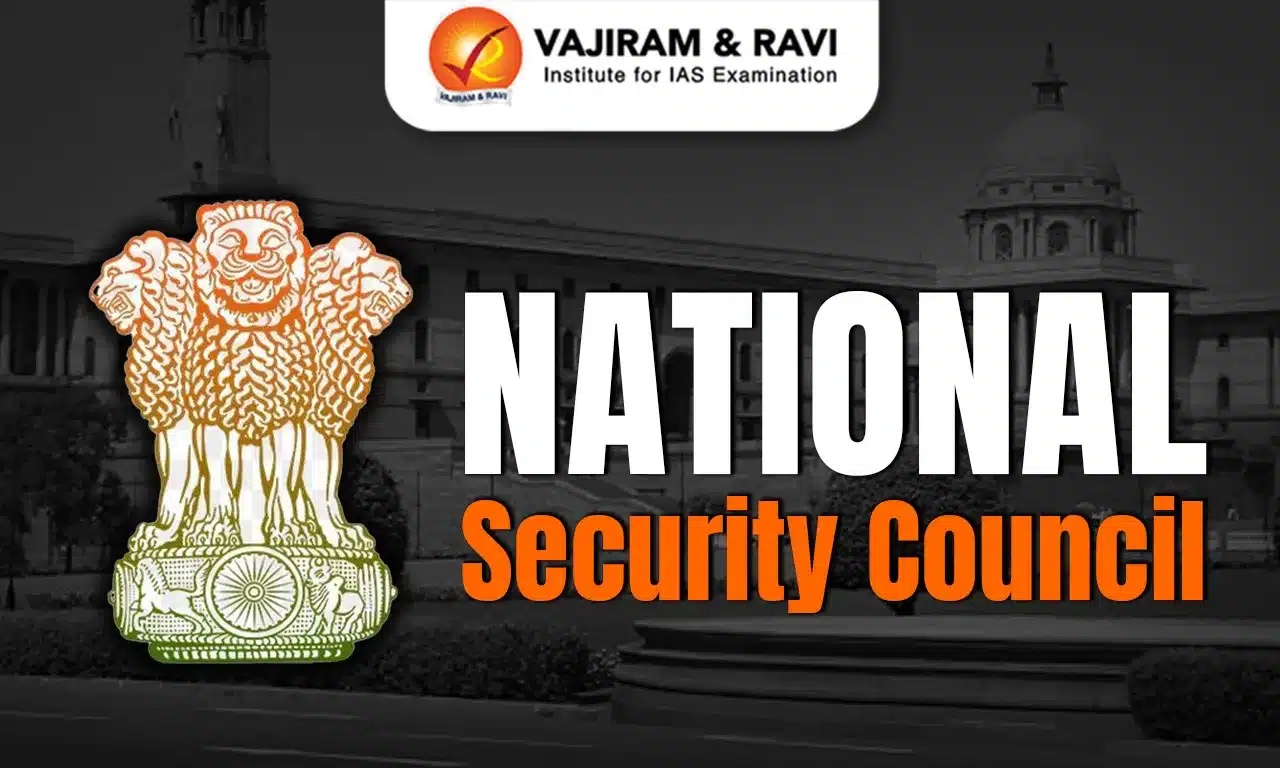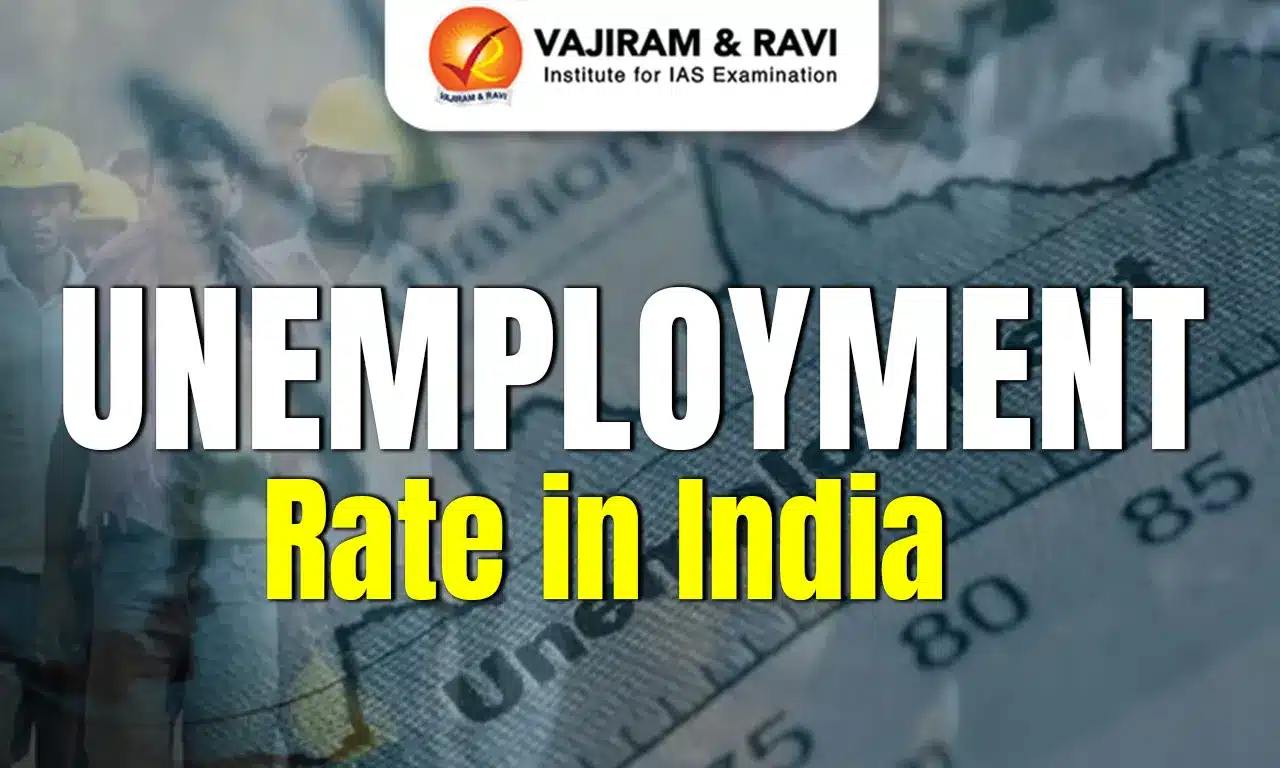Decolonisation refers to the process by which a colony or a region that was previously under the political and economic control of a foreign power gains independence and sovereignty. It involves breaking from colonial rule and reclaiming the right to self-governance and self-determination.
Decolonization gained momentum in the mid-20th century, particularly after World War II when the anti-colonial movements and struggles for independence became more widespread.
When did the process of decolonisation begin?
During the interwar period (1919-1939) the colonies questioned the right of the coloniser to colonise and oppress the people of the third world. It was after the end of World War II and the establishment of the United Nations that the process of decolonisation began when several Asian, African and Pacific countries emerged as sovereign independent countries.
What is decolonisation?
The term is used to refer to a chronological period, the post-World War II years, when political upheavals led to the establishment of nearly a hundred new nation-states across Asia, Africa and the Pacific. Decolonization encompasses more than just terminating direct political control; it also pertains to the cessation of all forms of colonialism.
Types of decolonisation
There are broadly four types of decolonisation:
- Self-government for white settler colonies as it happened in Canada and Australia
- A formal end to the empire followed by independent rule as in India
- Formal empire replaced by informal empire or neo-colonialism as in Latin America
- A mere change of imperial masters — in Indo-China when the French reluctantly left, the US moved in
Models of decolonisation
The specific methods used by different countries to achieve independence varied depending on the circumstances of each country.
- Through constitutional procedures and reforms: There were those colonies which became independent through constitutional procedures and reforms.
- For example India, Ghana, and Kenya
- Armed liberation struggles: There were some which achieved independence through armed liberation struggles.
- For example Algeria, Mozambique, and Zimbabwe
- Intervention of UNO: Some attained independence due to international pressures and the intervention of organisations such as the League of Nations and the United Nations.
- For example Indonesia, Congo, Namibia
The process of decolonisation
The process of decolonisation refers to the dismantling of colonial empires and the granting of independence to former colonies. While the specific process varied from colony to colony, some common elements and strategies were involved.
The process of decolonisation coincided with the new Cold War between the Soviet Union and the United States. It was often affected by superpower competition and had a definite impact on the evolution of that competition
- Emergence of Nationalist Movements: Nationalist sentiments began to grow in many colonised regions as local populations became more aware of their cultural identity, economic exploitation, and the desire for self-governance. Intellectuals, political leaders, and grassroots organisations played crucial roles in mobilising these movements.
- Political Mobilisation: Nationalist leaders and organisations rallied support among the local population through various means, such as political parties, trade unions, student organisations, and armed resistance movements. They sought to unite people around a common national identity and articulate their grievances against colonial rule.
- Resistance and Protests: Colonised populations engaged in a range of resistance activities, including peaceful protests, civil disobedience, strikes, boycotts, and demonstrations. These acts of resistance aimed to challenge colonial authority, demand political rights, and highlight the injustices of colonial rule.
- International Support: The decolonisation process was influenced by changing international dynamics and the rise of anti-colonial sentiment worldwide. The United Nations, established in 1945, played a significant role in promoting self-determination and condemning colonialism.
- Negotiations and Reforms: In some cases, colonial powers recognised the growing demand for independence and initiated negotiations with nationalist leaders. Reforms and concessions were sometimes granted, such as limited self-government or increased political representation.
- Independence and Transfer of Power: Ultimately, colonial powers had to decide to grant independence or face prolonged conflicts. The process of transferring power involved negotiations, constitutional arrangements, and the establishment of new governments. Independence was often followed by the drafting of new constitutions, the formation of national institutions, and the transition to self-rule.
After the end of the Second World War, numerous regions remained under European colonial dominion. However, in the subsequent two decades, many Asian and African colonies successfully gained their independence, becoming sovereign nations. Despite this newfound freedom, these countries faced substantial challenges such as poverty, limited resources, and the lingering effects of prolonged colonial rule, which hindered their economic and societal progress.
Key historical events and movements
The process of decolonisation was a complex and multifaceted one, with different countries experiencing it in different ways. However, there were a number of significant events and movements that helped to shape the process of decolonisation.
- Defeat of Russia: In the first decade of the twentieth century, the nationalists posed a challenge in Asia and Africa. In 1905, the remarkable ability of Japan, a relatively small Asian country, to decisively defeat Russia, a major European power, served as a great source of encouragement.
- Second World War:
- The war had a profound impact on the colonial world, as it led to the weakening of the European powers and the rise of nationalist movements in the colonies.
- The war also led to the formation of the United Nations, which played a major role in the decolonisation process.
- Bandung Conference in 1955:
- It was a meeting of Asian and African leaders who discussed the challenges of decolonisation and promoted cooperation between their countries.
- The Bandung Conference was a major turning point in the decolonisation process, as it helped to galvanise support for the independence of the colonies.
The decolonisation of Asia
The peoples of South-East Asia who were colonized took the lead in demanding the departure of Europeans and asserting their right to independence.
- Historical Background: The decolonisation process in Asia was influenced by several factors, including the weakening of colonial powers after World War II, the rise of nationalist movements, and the spread of anti-colonial ideologies.
- Indian Independence Movement: The Indian independence movement led by figures like Mahatma Gandhi and Jawaharlal Nehru played a pivotal role in inspiring and mobilising nationalist movements across Asia. India’s independence in 1947 from British colonial rule became a catalyst for other Asian countries seeking self-determination.
- Southeast Asia: After India, Indonesia gained independence from Dutch colonial rule in 1949, while Vietnam, Laos, and Cambodia freed themselves from French colonial control in the 1950s and 1960s.
The decolonisation of Africa
This was a much more protracted process than the decolonisation of India. It involved the independence of many different countries, and it was often accompanied by violence.
- There were three main waves of decolonisation in Africa:
- First: Late 1940s and early 1950s, with the independence of Ghana, Nigeria, and the Gold Coast.
- Second: The mid-1950s and early 1960s, with the independence of Kenya, Tanzania, and Zambia.
- Third: The late 1960s and early 1970s, with the independence of Mozambique, Angola, and Zimbabwe.
The Decolonisation of the Americas
- American Revolutionary War: The American Revolutionary War, fought between 1775 and 1783, marked a significant event in the decolonisation of the Americas.
- Latin American Wars of Independence: In the early 19th century, independence movements swept across Latin America. Influenced by the ideals of the American and French Revolutions
- Canadian Confederation: The process of decolonization in Canada was different from other parts of the Americas. The British colonies of Canada gradually achieved self-government and formed a confederation in 1867, leading to the creation of the Dominion of Canada. While Canada gained increasing autonomy, it remained part of the British Empire until it acquired full legal independence in 1982.
Differences between French and British decolonisation
- The British
- They maintained strategic, political and cultural interests in its erstwhile colonies through the Commonwealth
- British acceptance of national independence as a legitimate objective
- A liberation of India from British colonial rule set off a chain reaction of independence in other British colonies, such as Burma and Ceylon
- The French:
- The French had no mechanism like the British Commonwealth to ease the transition of colonies to independence.
- France continued to cling to its colonial possessions despite changes in global political dynamics. They did not believe in the legitimacy of nationalism for colonial subjects
- Assimilation remained the imperial ideal. Cultural integration was the mode of association preferred by the French.
- The French Union was federal only in name, and the National Assembly continued to be sovereign.
Yet, the outcome of these very different policies of the British and French was the same.
Following their newly acquired independence, some countries swiftly established stable governments, while others found themselves under the rule of dictators or military juntas for extended periods, and some even endured prolonged civil wars.
However, As per UN data, there are around 17 non-self-governing territories around the world where less than two million people still live under colonial rule. The non-self-governing territories are those whose people have not yet attained a full measure of self-government.
Decolonisation UPSC PYQs
- What problems are germane to the decolonisation process in the Malay Peninsula? (2017)
- The anti-colonial struggles in West Africa were led by the new elite of Western-educated Africans. Examine. (2016)
Last updated on April, 2025
→ UPSC Notification 2025 was released on 22nd January 2025.
→ UPSC Calendar 2026 is released on 15th May, 2025.
→ The UPSC Vacancy 2025 were released 1129, out of which 979 were for UPSC CSE and remaining 150 are for UPSC IFoS.
→ UPSC Admit Card 2025 is released now for CSE Prelims Exam 2025.
→ The UPSC Prelims 2025 is scheduled to be conducted on 25th May 2025 and UPSC Mains 2025 will be conducted on 22nd August 2025.
→ Apply once through it and aspirants can apply for various government exams conducted by UPSC.
→ The UPSC Selection Process is of 3 stages-Prelims, Mains and Interview.
→ UPSC Result 2024 is released with latest UPSC Marksheet 2024. Check Now!
→ UPSC Toppers List 2024 is released now. Shakti Dubey is UPSC AIR 1 2024 Topper.
→ Also check Best IAS Coaching in Delhi
Decolonisation FAQs
Q1. Why is the Cold War called cold?+
Q2. What was the outcome of the Bandung conference?+
Q3. What is decolonization?+
Q4. When did the process of decolonization begin?+
Q5. How did decolonization affect former colonies?+
Tags: decolonisation quest
















